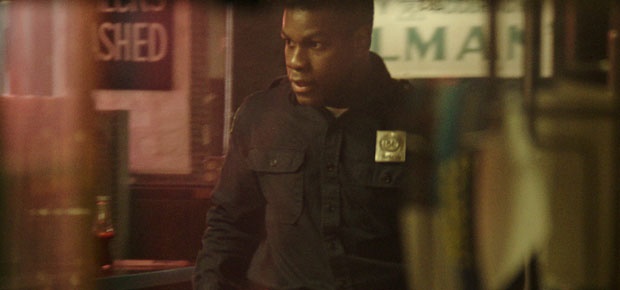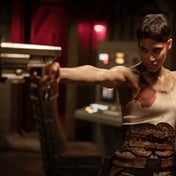
What it's about:
The story of one of the darkest moments during the civil unrest that rocked Detroit in the summer of ‘67.
What we thought:
This movie is a visceral experience in and of itself. But when you let the fact that the events depicted really happened sink in, it takes on a bigger narrative that reflects the realities of structural racism.
This film, which is set during the violent civil unrest that took place in 1967 in Detroit, is jarring, graphic and reminiscent of a war time flick. There are moments of quiet that make you feel as if something horrible is about to happen - and it does.
The script shows you things from both sides of the fatal and violent incident that happened at the Algiers Motel during the civil unrest. Viewers are exposed to the policemen’s supposed motives for the murders they committed and later justified in court. I have to say that this was the low point of the film, because although I do think that it is important to tell this story, I think that too much time was spent exploring Will Poulter’s Krauss and his co-conspirators’s emotions, motivations and non-existent guilt. I felt at certain moments that the framing of the story was too sympathetic towards these deplorable characters.
Thankfully by the end of the movie all ambiguity is lost and the distinctions are clear, but there are still some scenes that seem to scream: “Not all white people are like this” which is an unnecessary caveat in a film about structural racism and racial tensions coming to a boiling point. The film retells a moment in history and its retelling should not be centred around white people, or how they felt and why they did what they did, but rather showing what did happen from the perspective of the marginalised voices of people of colour that were there.
The film does do that in large part with John Boyega’s character of Dismukes, Algee Smith’s character of Larry, Jacob Latimore’s character of Fred and Jason Mitchell ‘s character of Carl. However, their suffering is drawn out to the point that it felt gratuitous and the brutality is almost pornographic. Many of the violent scenes pushed me to my breaking point. It was really hard to watch.
Kathryn Bigelow’s style of directing – for which she won numerous awards with her 2008 film Hurt Locker – makes you feel as if you were there. In a New York Times video Kathryn unpacks a scene in the movie and calls the style “experiential” and “kind of cinema verities“ which I have to say, for me, was a little too much at times.
I am well aware that my point of view might be that of a sensitive viewer, so I will say if you can stomach scenes of racially charged violence then this film might be for you. If you enjoyed American History X or The Believer then, again, this film might also be for you.




 Publications
Publications
 Partners
Partners











